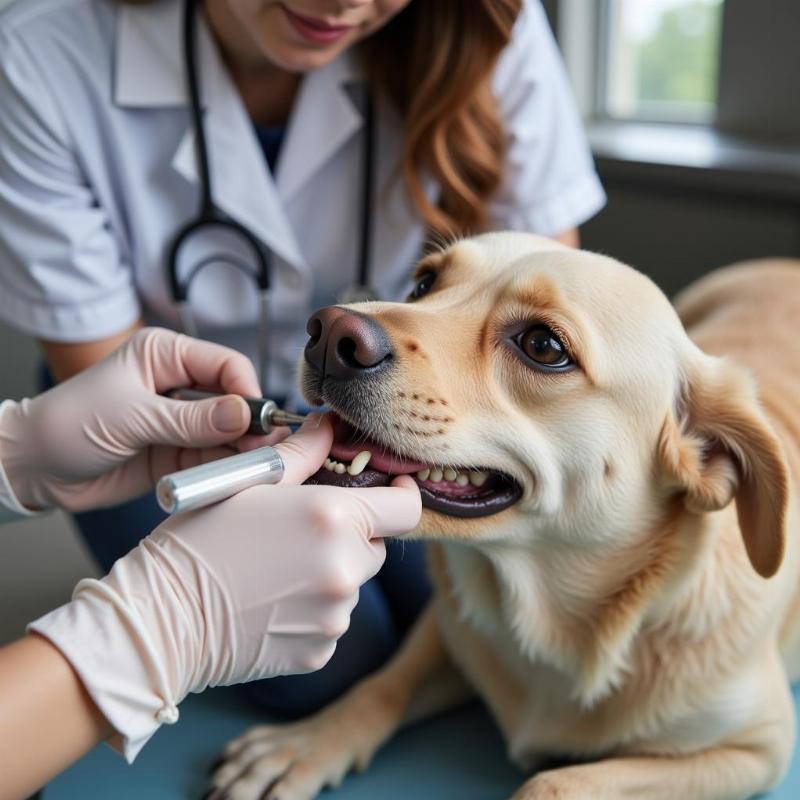No more dead dogs. These four words carry a heavy weight for any dog owner. They represent the ultimate fear – the loss of a beloved companion. While we can’t guarantee immortality, understanding responsible dog ownership and providing the best possible care significantly reduces the risks and ensures a long, healthy, and happy life for your furry friend. This comprehensive guide offers crucial insights into proper dog care practices in the US, empowering you to become a more informed and proactive pet parent.
Understanding Your Dog’s Needs
Just like humans, dogs have basic needs that must be met for their well-being. These include proper nutrition, regular exercise, mental stimulation, a safe and comfortable environment, and of course, plenty of love and attention. Neglecting these fundamental needs can lead to various health problems, behavioral issues, and ultimately, a shorter lifespan.
- Nutrition: Feeding your dog a balanced diet tailored to their age, breed, and activity level is paramount. Consult your veterinarian for recommendations on the best dog food options available in the US.
- Exercise: Regular physical activity is essential for maintaining a healthy weight, promoting cardiovascular health, and preventing behavioral problems stemming from boredom or pent-up energy. The amount and type of exercise will vary depending on the breed and age of your dog.
- Mental Stimulation: Keeping your dog mentally engaged is just as important as physical exercise. Puzzle toys, training sessions, and interactive games can help prevent boredom and destructive behaviors.
- Environment: Providing a safe and comfortable environment is crucial for your dog’s overall well-being. This includes a clean and spacious living area, a comfortable bed, and access to fresh water.
Preventing Common Health Issues
Regular veterinary checkups are essential for preventing and detecting potential health problems early on. Vaccinations, parasite prevention, and dental care are critical components of preventative care.
- Vaccinations: Core vaccines protect against common and potentially fatal diseases such as rabies, distemper, and parvovirus. Your veterinarian can recommend a vaccination schedule appropriate for your dog’s age and lifestyle.
- Parasite Prevention: Fleas, ticks, and heartworms are common parasites that can cause serious health problems in dogs. Preventative medications are readily available and should be administered regularly.
- Dental Care: Just like humans, dogs need regular dental care to prevent periodontal disease. Brushing your dog’s teeth, providing dental chews, and scheduling professional cleanings can help maintain good oral hygiene.
 Dog at Vet Checkup
Dog at Vet Checkup
Recognizing Signs of Illness
Knowing how to recognize the signs of illness in your dog is crucial for prompt intervention and treatment. Changes in appetite, lethargy, vomiting, diarrhea, coughing, difficulty breathing, and changes in behavior can all be indicators of underlying health issues. If you notice any of these signs, contact your veterinarian immediately.
Responsible Dog Ownership in the US
Responsible dog ownership extends beyond providing basic care. It also includes:
- Training and Socialization: Proper training and socialization are essential for developing a well-behaved and well-adjusted dog. Enrolling in obedience classes and exposing your dog to various people, places, and situations can help prevent behavioral problems and ensure their safety and the safety of others.
- Licensing and Identification: Licensing your dog is a legal requirement in most US states. Microchipping provides a permanent form of identification in case your dog gets lost.
- Spaying/Neutering: Spaying or neutering your dog can help prevent unwanted litters, reduce the risk of certain cancers, and minimize behavioral problems associated with hormones.
Conclusion
“No more dead dogs” is a plea, a hope, and a call to action. By understanding your dog’s needs and providing responsible care, you can significantly increase their chances of living a long, healthy, and fulfilling life. Remember, a well-informed owner is a key to a happy and thriving dog.
FAQ
- How often should I take my dog to the vet? Annual checkups are recommended for most adult dogs. Puppies and senior dogs may require more frequent visits.
- What are the signs of a healthy dog? A healthy dog will have a shiny coat, bright eyes, a good appetite, regular bowel movements, and plenty of energy.
- How much exercise does my dog need? The amount of exercise will vary depending on the breed, age, and overall health of your dog. Consult your veterinarian for recommendations.
- What should I feed my dog? A balanced diet tailored to your dog’s age, breed, and activity level is essential. Consult your veterinarian for recommendations.
- How do I prevent my dog from getting lost? Microchipping and ensuring your dog wears a collar with identification tags are the best ways to prevent them from getting lost.
- How can I find a reputable veterinarian in my area? The American Veterinary Medical Association (AVMA) website is a good resource for finding accredited veterinarians in your area.
- What are some good resources for learning more about dog care? The American Kennel Club (AKC) and the Humane Society of the United States (HSUS) are excellent resources for learning more about dog care.
Related Articles
Beautdogs.us is your premier destination for all things dog-related in the US. We provide expert advice on dog breeds, care, and products, catering to both new and experienced dog owners. Our mission is to empower you with the knowledge and resources you need to provide the best possible care for your furry companion. Learn more about how we can help you and your dog thrive by contacting us at [email protected] or calling +1 501-555-7529. Visit Beautdogs.us today for comprehensive and reliable information on dog care, breed specifics, and product recommendations!